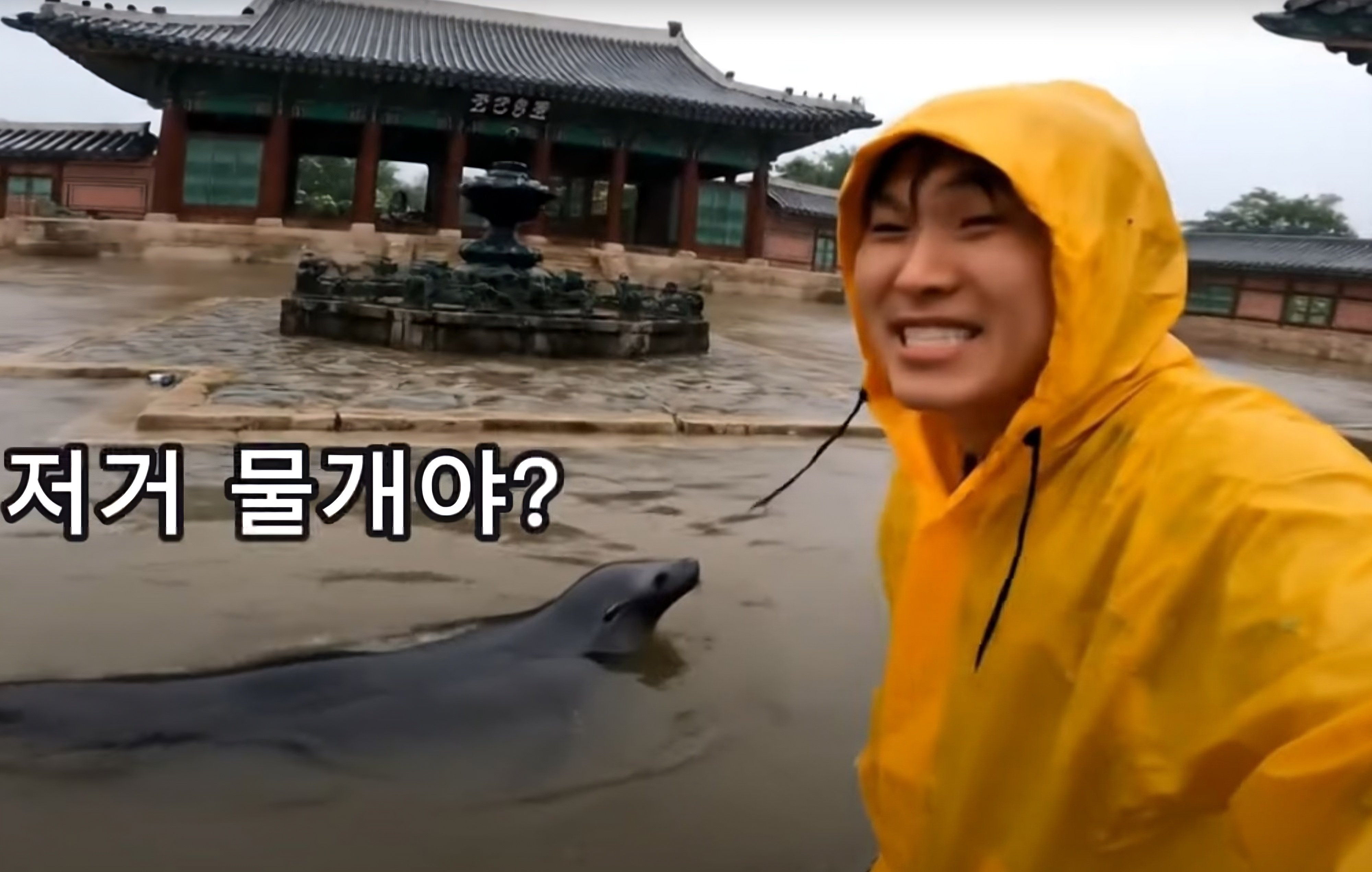Deepfake deluge: Seoul palace flood video spotlights AI risk in South Korea
Despite absurd details like a seal, the convincing video exploited monsoon rains to deceive, highlighting the ease of online manipulation

A hyperrealistic, AI-generated video depicting Seoul’s historic Gyeongbokgung Palace submerged under floodwaters has fuelled fresh alarm over the power of artificial intelligence to fabricate and spread misinformation.
The viral clip, first shared by the YouTube channel ‘Golpadak’, opens with a man in a yellow raincoat standing before the former royal palace. “Wow, the rain is incredible,” he remarks, gesturing towards what appears to be ankle-deep water. “Gyeongbokgung is completely flooded.”
Moments later, the video cuts to scenes of people desperately bailing water with plastic buckets, before panning to a seal gliding across the palace courtyard. “Wait – is that a seal? Oh my gosh, a seal!” the narrator exclaims, betraying the satirical undertone of the footage.
Despite the obvious absurdity of some details, the timing of the video’s release – amid a week of record-breaking monsoon rains in South Korea – convinced some viewers it was genuine.
“People who make fake videos just to confuse others should be held accountable,” one user commented, reflecting a wave of public unease.
The Korea Herald reported that the video was created with Veo 3, Google’s latest AI video generation model, known for its ability to produce convincingly realistic images and dialogue. Dozens of similar AI-generated videos about South Korea’s floods have proliferated across YouTube, the outlet noted.
It follows a similar viral hoax in June, in which a video purportedly showed lava flowing through central Seoul. That clip, too, revealed its AI-generated origins when the “news anchors” eventually broke character and admitted to being fakes.
The creator of the lava hoax, YouTuber “Ddalgak”, said his intention was to satirise the ease with which online audiences seem to accept what they see. He cited a recent scam involving a Korean woman duped by a deepfake of Tesla CEO Elon Musk as inspiration.
It was shocking that even low-quality AI technology could deceive peopleDdalgak, a Korean YouTuber who created an earlier hoax video
“It was shocking that even low-quality AI technology could deceive people,” he told local media, confirming he had also used Veo 3.
The rapid spread of synthetic media has intensified calls for more regulation. South Korea’s landmark AI Basic Act – the world’s first national frameworks for AI governance – will take effect on January 22, 2026, mandating explicit watermarking of all AI-generated videos.
Critics argue the law does not go far enough, however, as watermarks can be easily stripped away.
“AI model developers providing technology to detect synthetic content would be a wise method that avoids social costs,” said Choi Byung-ho, a professor at Korea University’s AI Research Institute, in comments to the Maeil Business Newspaper.
South Korea has already seen a surge in AI-driven misinformation and crime. Deepfake-related incidents have soared, ranging from non-consensual explicit content to political manipulation.
Unhandled type: inline-plus-widget {“type”:”inline-plus-widget”}
During last year’s parliamentary elections, the National Election Commission flagged more than 120 AI-manipulated videos or images, prompting new rules requiring clear disclosure of campaign content created by artificial intelligence.